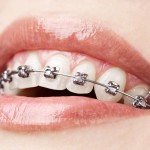
Pain is not an uncommon experience during orthodontic treatment, and has been reported as a cause of treatment discontinuation. The aim of the study was to assess the efficacy of a cognitive behavioural therapy (CBT) intervention for patients experiencing pain during orthodontic treatment.
Eligible patients were randomised into three groups CBT intervention(n=150), ibuprofen intervention(n=150), and no intervention(n=150). The CBT intervention was delivered immediately after initial archwire placement. The participants received an initial assessment and one CBT session (lasting 1.5 -2 hrs). The ibuprofen group, participants received 300 mg ibuprofen at 6, 12, and 24 hrs after initial archwire placement, with the therapists’ structured calls to remind them at designated time-points. The control group, received routine diet and hygiene instructions only.
The primary outcome was pain intensity measured by the VAS score. The secondary outcome was quality of life assessed by the SF-36. VAS data were collected on 1, 2, 3, 7, 14, and 30 days after initial archwire placement.
They found
The CBT and the ibuprofen groups displayed a similar change in pain intensity, and both differed significantly from the control group.
They concluded
….our results suggest that CBT is as effective as ibuprofen in orthodontic pain management, indicating its clinical application potential. Therefore, orthodontists may advise their patients to learn certain pain-coping skills under the conceptual framework of CBT.
Wang J, Jian F, Chen J, Ye NS, Huang YH, Wang S, Huang RH, Pei J, Liu P, Zhang L, Zhao ZH, Chen QM, Lai WL, Lin YF. Cognitive Behavioral Therapy for OrthodonticPain Control: A Randomized Trial. J Dent Res. 2012 Apr 4. [Epub ahead of print] PubMed PMID: 22492277.
